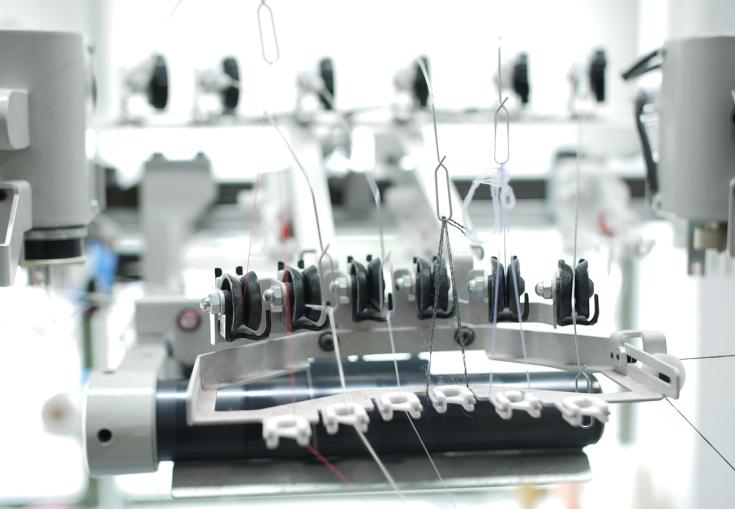Six TEXAD Good Practices so far
An Interreg project capitalises on the experiences previously gained within the participating regions. By exchanging experience and testing innovative new approaches, the partners may together identify new solutions to the challenges at hand. The solutions are then integrated in each regions development policies.
The meetings held within the framework of TEXAD, are also closely followed by each partner's local stakeholders and the surrounding municipalities. This exchange of ideas consolidates the expected project outcomes, as the GPs inspire and offer learnings from other regions with similar challenges.
At the end of the second semester of TEXAD, six Good Practices (GPs) has been put forward by the project partners. Three of them come from Sweden, and three more from Italy.
- Prevention Education
- Valorisation
- Consumer awareness
- The Prato Textile Hub
- GIDA Public-Private Partnership
- Prato Circular City
Sweden
Prevention Education
By Nordic Textile Academy (NTA) in Borås concerning the creation and skilling for Circular jobs. This practice shows how NTA works with skilling, re-skilling, and up-skilling. The school’s work is founded on a near collaboration with the industry. And the ability to fast track new skills programmes, while still following the European Qualification Framework.
Topics: ECO design education, Material education, Recycling technician education. The level of implementation is local, regional, and national. The importance of this practice is that the timescale is life-long learning.
Valorisation
A test bed experiment by the Science Park Borås and other stakeholders, including some NGOs. Concerning the valorisation of already sorted textile waste. It shows how you can find even more items fit for reuse in already sorted textile waste – in this case up to 28 % more items. The potential for learning or transfer of experience is limited since the sorted bales at hand reflect Swedish consumer disposing of textiles in a specific situation. The project indicates that deeper and more organised sorting can change the sorting outcomes.
Topic: Sorting Valorisation testing. The level of implementation is local, regional, and national. The performed experiment was included in a project and the timescale was limited to this project.
Consumer awareness
By the Science Park Borås – concerning Consumer Awareness. The projects included how the Science Park work with Consumer Awareness, based on having a holistic view on Textile waste handling. This includes the five dimensions: Technology, Business models, Policies/regulations, Behavioural actions, and the infrastructure of innovative systems. All based on their insights that you need to Scale up, Scale out, and Scale deep.
Topic: Consumer Awareness. Method of implementation is information, and the level of implementation is local, regional, and national. Timescale is not set, nevertheless, the necessity to raise awareness is huge. Resources required are not measured since the method was not tested.
Italy
The Prato Textile Hub
By Prato Circular City – focusing on the funding and infrastructure to establish the main Italian textile hub in Prato – consolidating the role of the Prato district as a technological and operational hub for textile recycling at a European level.
Topics: Reuse and recycle pre-consumer and post-consumer textile waste. Method of implementation is automatic textile waste sorting, based on colour and type of fibre, using infrared sensors. The level of implementation is local, regional, and national. Timescale is to be operative by 2026.
GIDA Public-Private Partnership
By the Municipality of Prato and the regional industrial confederation – showing a model for collaboration, in sustainable waster waste management. Through its five different plants, GIDA manages all the wastewater from both the industry and the citizens. The facilities process up to 50 million cubic meters of wastewater annually, with a portion being recycled back into the textile industry.
Topic: Minimising environmental impacts. Method of implementation is working groups organised around specific topics decided together with the city stakeholders. The level of implementation is local. Timescale is ongoing/long-term.
Prato Circular City
Designing sustainability at the urban level, by the municipality of Prato – concerning how to accelerate the transition to the circular economy. The project has two main objectives:
1. Strengthening the image of Prato as a "circular city" – promoting shared, integrated, and participatory actions.
2. Establishing a permanent forum with the stakeholders of the territory to promote shared circular economy actions and to build a governance model.
Several topics are addressed, the idea is to support the circular transition in housing, working, production and buildings/spaces. The level of implementation is local, regional, and national. The timescale is for now continuous, even if separate included projects have set time plans.

